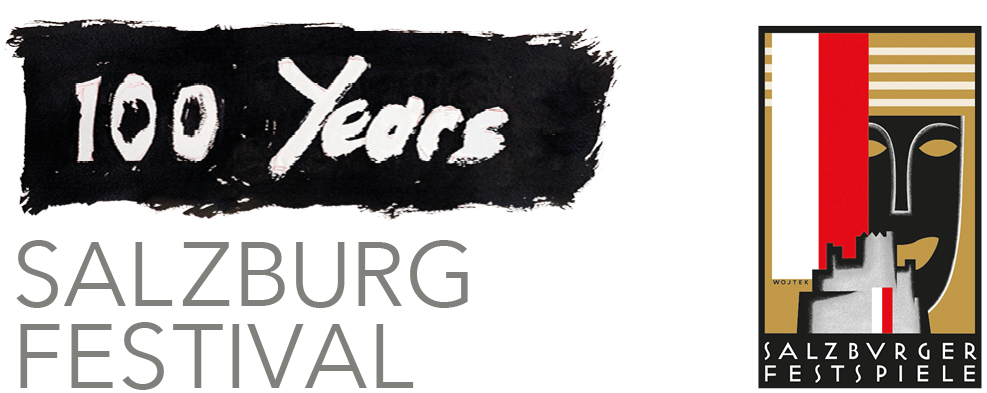26 JULY 2020 TO 31 OCTOBER 2021
NEUE RESIDENZ
MOZARTPLATZ 1
5010 SALZBURG
OPENING HOURS
Tue–Su 9–17
Contact:
secretariat
Gerlinde Kontschieder
+43-662-62 08 08-703
office@salzburgmuseum.at
guided tours
Sandra Kobel
+43-662-62 08 08-722 and 723
kunstvermittlung@salzburgmuseum.at
Head of Press & Marketing
Natalie Fuchs
Salzburg Museum
+43 662 620808-777
natalie.fuchs@salzburgmuseum.at
The Word – An installation in dialogue with the artist Eva Schlegel and the Salzburg Literature Archive
Neue Residenz – 1. Obergeschoss
Video installation, mirrors, photographs, selected texts and materials
An installation by the artist Eva Schlegel conveys the significance of contemporary Austrian drama for the Salzburg Festival.
From the very beginning, Max Reinhardt and Hugo von Hofmannsthal ranked the straight theatre as having outstanding significance for the Salzburg Festival. Over the last 100 years, drama has had a turbulent time in achieving its status and has hovered
between tradition and modernity in its programmatic alignment. Particularly since the 1970s, the straight drama programme has gone through a remarkable development, with an emphasis on contemporary Austrian theatre and related especially to
dramatists such as Fritz Hochwälder, Thomas Bernhard and Peter Handke. Later, world premières by Austrian authors followed, including Elfriede Jelinek, Christoph Ransmayr and Peter Turrini. Together with the Literature Archive of the University of Salzburg, the Austrian artist Eva Schlegel has created an installation presenting selected texts and quotations. At the end of the exhibition course, the history of the Salzburg Festival is reflected in the words of Thomas Bernhard, Peter Handke and Elfriede Jelinek – nevertheless, the last word of the anniversary exhibition belongs to Hugo von Hofmannsthal.
Glossary
Eva Schlegel (born in 1960 in Hall in Tirol) lives in Vienna. She studied with Oswald Oberhuber at the Vienna University of Applied Arts between 1979 and 1985 and taught between 1997 and 2006 as professor of art and photography at the Academy of Fine Arts in Vienna. Schlegel works as a photographer, media and object artist. She frequently uses materials like glass and lead, creating projects pivoting between photographic objectivity and painterly blurredness.
Literaturarchiv der Universität Salzburg is a research centre that was set up in 2012 by the University, State and City of Salzburg. The archive owes an important part of its collection to the Adolf Haslinger Literature Foundation. The institution collects and searches for lifetime and posthumous bequests and estates by authors with connections to Salzburg. It researches its holdings in the contexts of Austria as a whole and the international scene and communicates the results in publications, lectures,
conferences, exhibitions, et al. By accompanying literary life in Salzburg, the Literature Archive is also a knowledge treasury of the history of drama at the Salzburg Festival – especially with its inventory of the works of Peter Handke.
Thomas Bernhard (born in 1931 in Heerlen, Netherlands; died in 1989 in Gmunden) is one of Austria’s most important writers. His complete works include prose, drama and poetry. Bernhard’s novels and plays caused many a scandal because of their criticism of Austrian politics and society. Tumults and exhilaration also marked the reaction to Bernhard’s works at the Salzburg Festival. During his life, five of his plays* in toto were premièred in Salzburg, holding a mirror up to the Festival and to the
world of the theatre.
* Der Ignorant und der Wahnsinnige / The Ignoramus and the Madman (1972), Die Macht der Gewohnheit / The Force of Habit (1974), Am Ziel / Destination (1981), Der Theatermacher / The Impresario (1985), Ritter, Dene, Voss (1986)
Peter Handke (born in 1942 in Griffen, Carinthia) has lived and worked since 1990 in Chaville in France. He is one of the most outstanding Austrian writers who was awarded the Nobel Prize for Literature in 2019. Meanwhile, his life and work have special connections to Salzburg and the Salzburg Festival. Handke moved to Salzburg in 1979 after extended periods in various European cities. Until 1987, he lived in a house on Mönchsberg in Salzburg, where he wrote important texts, novels, translations and plays. The dramatic poem Über die Dörfer / Walk About the Villages (1982) was premièred at the Salzburg Festival. Handke remained connected to the Festival also after his departure from Salzburg, with the world première of Immer noch Sturm / Storm Still (2011) or the new play Zdeněk Adamec (2020).
Elfriede Jelinek (born in 1946 in Mürzzuschlag) lives and works in Vienna and Munich. She is one of the most important female authors in Austria and was awarded the Nobel Prize for Literature in 2004. Her novels, texts and plays attack in multifaceted ways the grievances in public, political and private life within Austrian society. Jelinek’s writings against the suppressed heritage of the Nazi regime are prime examples. Her style is permeated with intense verbal passion. The impact of her words and her
personality combine to generate unique texts. Her play er nicht als er (zu, mit Robert Walser) / He not Himself (on, with Robert Walser) was premièred at the Salzburg Festival in 1998.



